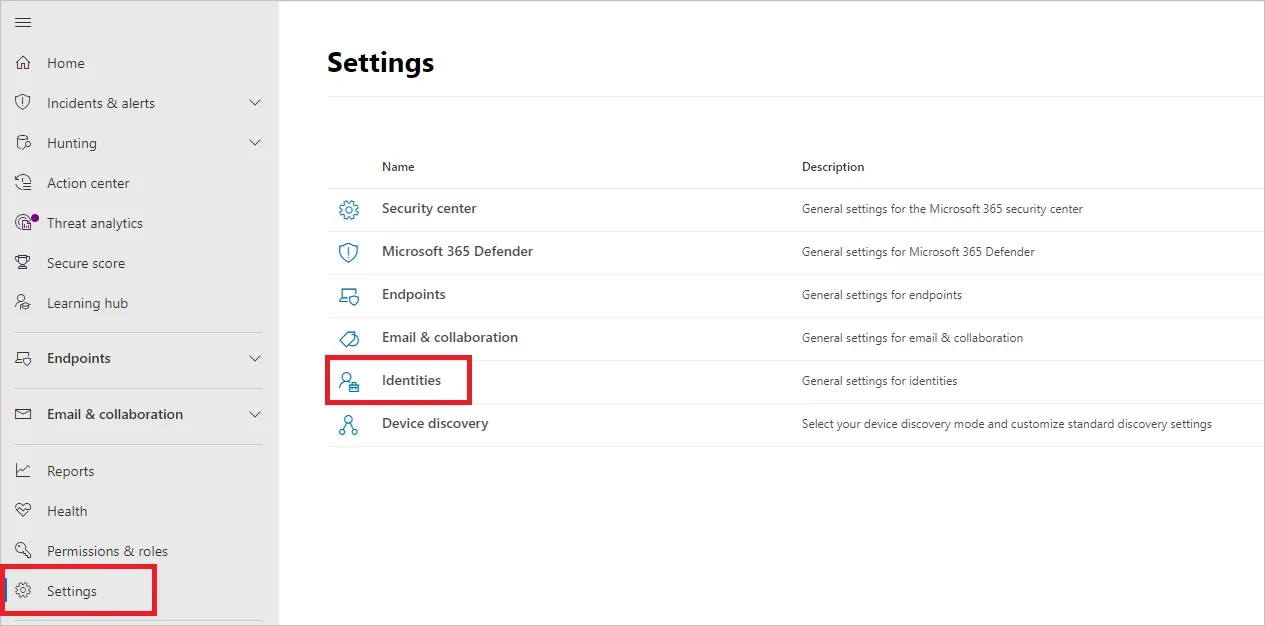The recent announcement regarding Microsoft Defender VPN discontinuation has left many users surprised and concerned. Initially introduced to enhance online privacy for Microsoft 365 subscribers, this feature was expected to provide a secure browsing experience across various devices, including Windows PCs and smartphones. However, after only seven months of availability, Microsoft has decided to remove this VPN feature at the end of February 2025. This decision raises questions about the effectiveness and usage of the Microsoft Defender VPN feature, especially as users seek reliable privacy protection VPNs. As current subscribers transition away from this service, exploring third-party VPN alternatives like NordVPN or ClearVPN may become essential for maintaining online security and anonymity.
The withdrawal of the virtual private network (VPN) service from Microsoft Defender has sparked conversations about the future of digital privacy solutions. Less than a year after being added to the Microsoft 365 suite, this privacy tool is set to be removed, leaving many to ponder their options for secure online browsing. Users who relied on the VPN functionality for enhanced safety will now need to seek external solutions to safeguard their internet connection. The decision has prompted discussions surrounding the adequacy of Microsoft’s offerings in the realm of online security and whether their focus will shift towards more impactful features in the future. With the impending removal of this service, the importance of choosing reliable third-party VPN alternatives has never been greater for those who prioritize their privacy.
Understanding the Discontinuation of Microsoft Defender VPN
Microsoft Defender VPN was introduced to enhance the security of users subscribed to Microsoft 365 Personal and Family plans. However, after only a few months of operation, Microsoft has announced the discontinuation of this feature, effective February 28, 2025. This decision has left many users puzzled, as the VPN was designed to provide a layer of privacy protection while browsing online. Despite its initial promise, the feature failed to gain significant traction among users, leading to its early removal.
The email notification from Microsoft highlighted that users who activated the VPN feature would lose access to it by the end of February 2025. This abrupt discontinuation raises questions about the future of privacy protection in Microsoft’s suite of services. While the company reassures users of its commitment to develop new features, the lack of detailed reasoning behind this decision leaves many wondering about the effectiveness and actual usage of the VPN feature within the Microsoft ecosystem.
Alternative VPN Solutions Following Microsoft Defender VPN Removal
With the discontinuation of Microsoft Defender VPN, users are now seeking viable third-party VPN alternatives to maintain their online privacy. Popular options such as NordVPN and ClearVPN offer robust features that can enhance security and privacy when browsing. These services provide encryption and anonymity, making them suitable replacements for users who relied on Microsoft’s VPN feature. Choosing a reputable third-party VPN can provide not only the privacy protection that users desire but also additional features like ad blocking and malware protection.
When selecting a third-party VPN, it is essential to consider factors such as speed, security protocols, and user-friendliness. Many VPN services also offer compatibility across multiple devices, allowing users to secure their browsing experience on Windows, iOS, Android, and other platforms. As users transition away from Microsoft Defender VPN, it is crucial to assess which alternative best meets their needs to ensure continued protection of personal data and online activities.
The Impact of VPN Removal on Microsoft 365 Users
The removal of the VPN feature from Microsoft Defender will affect many Microsoft 365 users, particularly those who valued the added layer of security that a VPN provides. Users may now feel exposed without this additional privacy protection, especially given the increasing concerns around online security and data breaches. Although Microsoft will continue to provide basic protection through its Defender suite, the absence of a VPN means that users will need to take further steps to safeguard their online presence.
For many, relying solely on Microsoft Defender’s standard features may not suffice in today’s digital landscape, where threats are becoming more sophisticated. This situation emphasizes the importance of being proactive about online security. Users are encouraged to explore third-party VPN options that can offer comprehensive privacy protection and complement the services provided by Microsoft 365.
Exploring Privacy Protection Options Beyond Microsoft
In light of the discontinuation of the Microsoft Defender VPN, users are left with the task of exploring other privacy protection options that are available. The market is flooded with various VPN services that cater to different needs, making it easier for individuals to find a solution that fits their specific requirements. Whether seeking enhanced security, better performance, or additional features, there are numerous alternatives to consider.
When evaluating a VPN, users should look for features such as a no-log policy, robust encryption standards, and a wide range of server locations. Additionally, many providers offer trial periods or money-back guarantees, allowing users to test the service before committing. This flexibility can help users transition smoothly from Microsoft Defender VPN to a suitable third-party service without compromising their online security.
Microsoft 365 Personal Subscribers and the VPN Transition
For subscribers of Microsoft 365 Personal, the transition away from the Microsoft Defender VPN may bring about a need to reassess their security strategies. With the VPN feature being removed, users must now look for alternative solutions to ensure their online activities remain private. Microsoft’s assurance of continuing to provide essential protection through their Defender suite may not fully address the concerns of users who valued the VPN for its additional security.
As Microsoft 365 Personal subscribers navigate this change, it is crucial for them to stay informed about available third-party VPN services. These alternatives can help fill the gap left by the discontinuation of Microsoft Defender VPN and ensure that users can maintain their desired level of online privacy and security. By exploring various options, users can find a VPN that aligns with their needs and preferences.
The Future of VPN Features in Microsoft Services
The discontinuation of the Microsoft Defender VPN raises questions about the future of VPN features within Microsoft’s services. As the company shifts focus towards investing in areas better aligned with customer needs, it is essential to consider how this might affect the development of security features in the Microsoft ecosystem. The removal of the VPN could signify a broader strategy to refine their offerings, potentially leading to new products or features that resonate more with users.
While the removal of the VPN may seem like a setback for privacy-conscious users, it could also pave the way for Microsoft to enhance existing security features or innovate in other areas. As the digital landscape evolves, companies must adapt to changing user needs and expectations. Whether Microsoft will reintroduce similar features or develop new privacy tools remains to be seen, but the tech community will be watching closely.
User Reactions to the VPN Discontinuation
The announcement of the Microsoft Defender VPN discontinuation has sparked varied reactions among users. For some, the removal of the VPN feature is disappointing, especially for those who relied on it for enhanced security while browsing. Many users expressed their frustrations over the lack of communication regarding the decision and the implications it has for their online safety. The abrupt nature of this change has led to feelings of uncertainty among subscribers who expected a more comprehensive suite of features from their Microsoft 365 subscription.
On the other hand, some users may not have been aware of the VPN feature’s existence, resulting in a relatively muted response. This highlights a significant aspect of Microsoft’s communication strategy, as the VPN’s lack of visibility likely contributed to its underutilization. Moving forward, it will be essential for Microsoft to effectively communicate changes to its services and ensure users are aware of the tools available to them, particularly in the domain of online privacy.
Navigating the Transition from Microsoft Defender VPN
As the transition from Microsoft Defender VPN approaches, users need to prepare for the changes that will take place after February 28, 2025. This includes understanding how to remove any remnants of Microsoft’s VPN from their devices, particularly on Android, where users must manually delete the VPN profile. This step is vital to ensure that no inactive profiles remain, which could lead to confusion or potential security risks.
Moreover, users should take this opportunity to research and test third-party VPN services that can provide the privacy protection they seek. With numerous options available in the market, users can find a VPN that meets their requirements for security, speed, and reliability. By proactively exploring alternatives, users can ensure a seamless transition and continue to enjoy the benefits of online privacy.
The Business Implications of VPN Feature Removal
The removal of the Microsoft Defender VPN feature has significant implications for businesses relying on Microsoft 365 services for secure online operations. Companies that previously utilized the VPN for team collaboration and secure remote access must rethink their strategies to maintain the same level of security. This shift could lead to increased costs as businesses may need to invest in third-party VPN solutions to fill the gap left by Microsoft.
Furthermore, businesses must also consider the potential impact on employee productivity and security posture. With the removal of the VPN, organizations may face challenges in ensuring that remote employees can securely access company resources. This situation underscores the importance of having a comprehensive security strategy that includes reliable VPN solutions as part of the broader organizational framework.
Frequently Asked Questions
Why is Microsoft discontinuing the Microsoft Defender VPN feature?
Microsoft is discontinuing the Microsoft Defender VPN feature due to low usage and effectiveness. The company routinely evaluates its services to ensure they meet customer needs, and it appears that the VPN feature, introduced in July 2024, was not widely adopted by users.
When will the VPN removal from Microsoft 365 occur?
The VPN removal from Microsoft 365 will take effect on February 28, 2025. After this date, subscribers to Microsoft 365 Personal and Family will no longer have access to the privacy protection VPN feature.
What alternatives can I use for VPN after Microsoft Defender VPN discontinuation?
After the Microsoft Defender VPN discontinuation, users can consider third-party VPN alternatives such as NordVPN or ClearVPN from Readdle to maintain privacy protection and online security.
Will I still have protection with my Microsoft 365 subscription after the VPN is removed?
Yes, even after the Microsoft Defender VPN is removed, subscribers will still receive standard protection that includes data and device protection, identity theft monitoring (in the US), and threat alerts to enhance online safety.
How do I remove the Microsoft Defender VPN from my Android device?
To remove the Microsoft Defender VPN from your Android device after its discontinuation, go to your phone’s ‘Settings’ app, search for VPN, and click the ‘Info’ icon next to the Microsoft Defender VPN profile to delete it manually.
What should I do if I activated the Microsoft Defender VPN feature?
If you activated the Microsoft Defender VPN feature, you will need to prepare for its discontinuation on February 28, 2025, by considering third-party VPN options for your privacy protection needs.
Is there an explanation for the sudden removal of the VPN feature from Microsoft 365?
Microsoft has not provided a comprehensive explanation for the sudden removal of the VPN feature from Microsoft 365. The company mentioned it routinely assesses the usage and effectiveness of its features, indicating that the VPN may not have met user expectations.
What happens to my VPN settings after the Microsoft Defender VPN is discontinued?
After the Microsoft Defender VPN is discontinued on February 28, 2025, the VPN will be automatically removed from Windows, iOS, and macOS systems. However, Android users must manually delete the VPN profile from their device settings.
| Key Point | Details |
|---|---|
| Discontinuation Announcement | Microsoft Defender VPN feature will be discontinued on February 28, 2025. |
| Duration of Service | The VPN feature was available for less than a year, introduced in July 2024. |
| Reason for Discontinuation | Microsoft cited low usage as the likely reason for discontinuation, stating they routinely evaluate feature effectiveness. |
| User Notification | Users received an email informing them of the discontinuation and its effective date. |
| Alternative Options | Users seeking VPN services are recommended to consider third-party options such as NordVPN or ClearVPN. |
| Manual Removal for Android Users | Android users must manually delete the VPN profile from their device settings after the service ends. |
Summary
The recent announcement of Microsoft Defender VPN discontinuation highlights a significant shift in Microsoft’s approach to its security offerings. Originally launched in July 2024 for Microsoft 365 subscribers, the VPN service will be terminated by February 28, 2025, due to insufficient user engagement. This decision reflects Microsoft’s commitment to optimizing its features based on user needs, encouraging users to explore third-party VPN options for enhanced security. While standard protection services will remain available, the discontinuation of the VPN feature indicates a need for users to adapt and seek alternative solutions for their online privacy.








